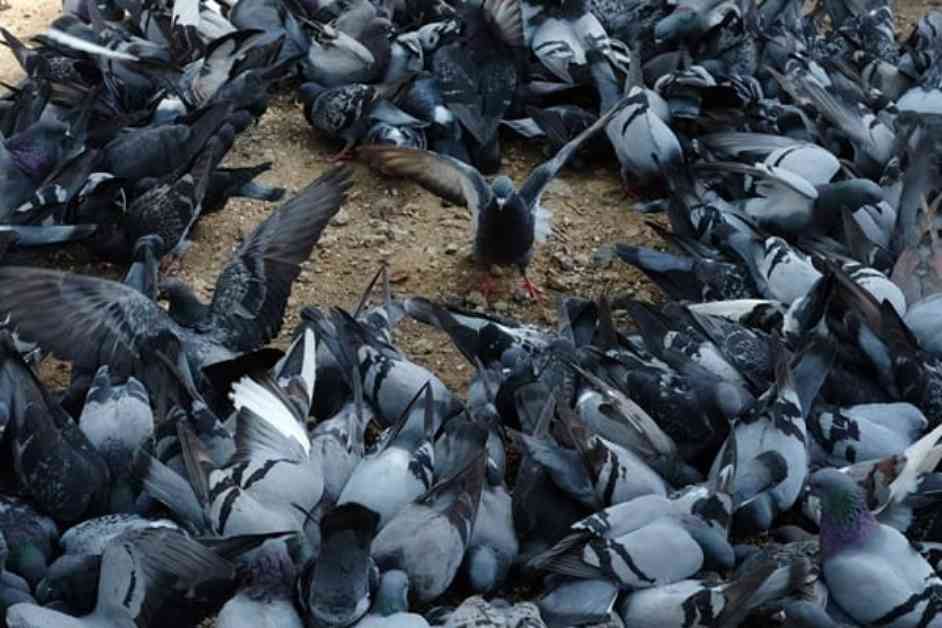Protecting Your London Business Premises: Bird Pest Control Tips
Birds are a common sight in London, adding to the city’s charm with their graceful flights and melodic songs. However, when these feathered creatures start causing problems for businesses, they can quickly turn from delightful to destructive. Pigeons, starlings, gulls, and sparrows are among the most common bird pests that can create havoc in urban areas like London. From soiling surfaces with droppings to damaging property with their nesting activities, pest birds can pose serious challenges for business owners.
Understanding Bird Behavior and Common Pests
Pigeons are perhaps the most notorious bird pests in London, known for their ability to adapt and thrive in urban environments. These birds often roost on buildings, ledges, and rooftops, creating a mess with their droppings and causing structural damage. Starlings, gulls, and sparrows are also frequent culprits, attracted to the abundance of food sources and nesting opportunities in the city.
Birds are omnivorous creatures, feeding on a wide range of items from crumbs to insects and fruits. Their nesting habits, such as seeking shelter in crevices and ledges, can lead to the formation of large flocks that exacerbate the nuisance they cause. Moreover, bird droppings can carry harmful pathogens like histoplasmosis and salmonella, posing health risks to humans and animals.
Preventive Measures for Bird Pest Control
Preventing bird infestations requires a multi-faceted approach that combines building design, landscape management, and ongoing maintenance. Bird-proofing techniques like mesh netting, spikes, and overhangs can deter birds from accessing buildings and roosting on surfaces. Sealing entry points and using materials that birds find unappealing can also help in keeping them at bay.
Effective landscape management plays a crucial role in bird pest control. Removing food sources like garbage and bird feeders can discourage birds from congregating in the area. Trimming trees and shrubs, as well as creating inhospitable environments with gravel or sand, can make your premises less attractive to pest birds.
Non-Lethal Control Methods
Non-lethal methods are often preferred for deterring birds from businesses without causing harm to the animals. Repellents like acoustic devices that emit distress calls or reflective materials that create a sense of danger can discourage birds from settling in the area. Visual repellents like scarecrows can also be effective, although birds may become accustomed to them over time.
Exclusion techniques, such as bird netting, spikes, and barriers, can physically block birds from accessing specific areas of your property. Habitat modification, including removing nesting sites and providing alternative shelter, can make your premises less inviting to pest birds. These non-lethal methods are humane and environmentally friendly ways to manage bird infestations.
Lethal Control Methods and Regulatory Compliance
In cases where non-lethal methods have proven ineffective or when there are significant health risks posed by bird infestations, lethal control methods may be necessary. However, it is essential to comply with local wildlife protection laws and obtain the required permits before implementing such measures. Trapping and relocating birds to suitable habitats are preferred alternatives to killing them.
Partnering with a professional pest control company that specializes in bird control can provide valuable expertise and assistance in managing bird infestations. These experts can assess the situation, recommend appropriate control measures, and ensure compliance with regulations. By adhering to legal requirements and using humane and effective techniques, businesses can effectively manage bird pests while protecting the environment.
Conclusion
Protecting your London business premises from bird pests requires a proactive approach that combines preventive measures, non-lethal control methods, and professional assistance when needed. By understanding bird behavior, implementing effective strategies, and complying with regulations, business owners can safeguard their establishments from the damaging effects of pest birds. Whether through bird-proofing techniques, habitat modification, or professional pest control services, businesses can effectively manage bird infestations and create a safe and inviting environment for customers and employees alike.





















